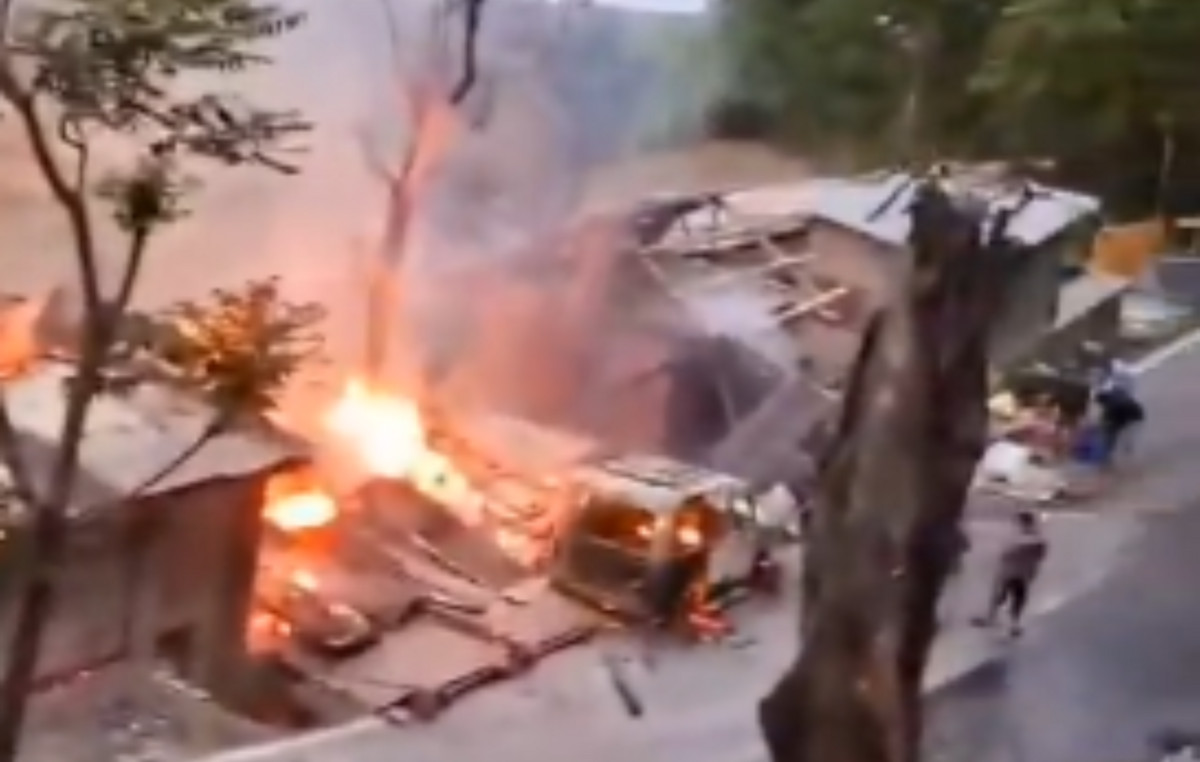The investigation conducted by the Federal Police (PF) into the fire in a shed of the Cinemateca Brasileira last year concluded that the episode was accidental.
“According to the PF report, the experts considered the cause of the fire to be accidental, during the maintenance of the air conditioning system carried out by an outsourced company”, informed the Special Secretariat for Culture, in a note.
“The Special Secretariat for Culture evaluates administrative/judicial measures in order to determine responsibilities with a view to restoring the damage to public property”, he adds.
The fire took place in a Cinemateca shed in the Vila Leopoldina neighborhood, in the city of São Paulo. The estimate of the Fire Department indicated that the fire reached about 300 m², which included three rooms with historical archives.
The flames erased a relevant part of the country’s audiovisual record, of world importance, and the case was seen as an announced disaster. The government had already been warned about the risk by the Public Ministry, the press and experts.
The morning after the fire, the federal government published a public notice to hire an entity to take care of the institution in São Paulo.
About four tons of documents on the history of cinema in Brazil, including part of Glauber Rocha’s collection, were among the materials stored in the cinematheque’s warehouse.

The Cinemateca is the responsibility of the federal government and is managed through the special secretary of culture in Brasília.
For not having the inspection report from the Fire Department, the property received a warning and has a period of 180 days for regularization. In a public hearing on July 20 of last year, the Public Ministry in São Paulo warned of the risk of fire.
A document records that after a visit to the site, the MP identified a risk, mainly in relation to nitrate films.
Cinematheque on fire: what is the best management model in culture
The fire that hit the Cinemateca shed reactivated the debate around the entity’s management model, which holds the largest collection in Latin America dedicated to cinema.
A year ago, it had been administered directly by the federal government. The morning after the fire, the Special Secretariat for Culture published a public notice for the choice of a civil society organization that will be responsible for taking care of the space.
Cinemateca was managed by the Associação de Comunicação Recreativa Roquette Pinto (Acerp), a social organization based in Rio de Janeiro that had already managed TV Escola for the federal government since 2018.
The contract expired at the end of 2019 and has not been renewed. In August 2020, all employees linked to Acerp were fired and the federal government resumed management, promising to launch a new public notice to choose a new management entity – which only happened the morning after the fire.
The delay in publishing the rules for the process had been criticized by the audiovisual sector.

as revealed to CNN the Federal Public Ministry even questioned what it called “financial strangulation and administrative abandonment” of the institution and alerted the government, in a hearing on July 20, of the possibility of a fire in the Cinemateca facilities.
Sought by the report, the Ministry of Tourism and the Special Secretariat for Culture did not respond.
Specialists are divided on which management model is more efficient and suitable for the Cinematheque and other cultural facilities.
“The management model is central to what happened”, says researcher and professor at the University of São Paulo (USP) Carlos Augusto Calil, president of the Sociedade Amigos da Cinemateca.

“Choosing a social organization will not solve the problem. The Cinematheque needs to be renationalised, tenders need to be held to hire specialized personnel.”
The Brazilian Cinemateca Workers group, which includes employees fired by the federal government in August of last year, also questioned the public notice.
“Last night’s fire is yet another reason why we cannot wait to put an end to the scorched earth policy and erasure of national memory,” they said in a statement released on Friday morning, in which they complained about the “lack of of transparency” in the conduct of the process.

“The proposed model does not account for the complexity of an organ of this size”, completes the text.
Professor of Public Management at Fundação Getúlio Vargas, Regina Silvia Pacheco disagrees.
“In forty years of research and work on public administration, I can say with certainty that there is no efficient management in culture through direct administration. Talking about renationalizing is a step backwards”, he says.
She recalls that the National Museum, which caught fire in 2018 in Rio de Janeiro, is managed directly by the state.
Other incidents, such as the fires at the Teatro Cultura Artística, in 2008; at the Portuguese Language Museum, in 2015; and at the Teatro Municipal do Rio de Janeiro, in 2017, took place in institutions with different forms of management.
“The problem is not in the model, but in the way in which management is carried out, in the attention that is actually given to it.”

Source: CNN Brasil







